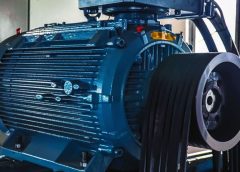Manufacturing plants and other industrial sites rely on electricity to operate heavy machinery. However, the amount of power these facilities need can be dangerous if not monitored properly. Overworked circuits can cause electrical fires, which puts buildings and employees at risk.
Fortunately, professionals take certain measures to keep these dangerous events from occurring. But, how do industrial facilities prevent electrical overload? Keep reading to learn more.
What Is Electrical Overload?
Electric devices and machines work with conductors that pass currents to and from the electrical source. When too many currents run through a single circuit, the entire system shuts down or sparks. This malfunction is known as electrical overload, and it can happen in homes and commercial buildings.
How Industrial Facilities Prevent the Problem
Industrial facilities take several precautions to prevent electrical overload. These measures include performing frequent maintenance, identifying high-power devices, and getting expert opinions. Without these techniques, plants can’t maintain their electrical safety standards.
Preventative Maintenance
One of the most common causes of electrical motor failure and other machine malfunctions is electrical overload. Often, it occurs when unmaintained equipment overheats and degrades. Preventative maintenance includes investing in high-quality circuit breakers and fuses that automatically cut power before currents overwhelm your machines.
Professional Inspections
Manufacturing plants benefit from frequent equipment inspections. While technicians should look over their machines daily, you need a professional eye to spot developing problems. Electrical experts can make recommendations regarding protection devices, outlet arrangements, and maintenance to prevent electrical overload from destroying your operations.
Separating Devices
You need to identify your high-performing devices and separate them from the rest of your equipment. Machines that draw a lot of power should never share outlets as this is a perfect recipe for dangerous overcurrents. This is why professional inspections are so important—a trained expert can tell you which pieces of equipment need their own power sources and which ones are safe to share outlets.
Since industrial facilities are notoriously dangerous worksites, they must put in extra effort to meet and exceed safety standards. Preventing electrical overload doesn’t just protect staff members; it also increases efficiency, putting more money into everyone’s pockets.





